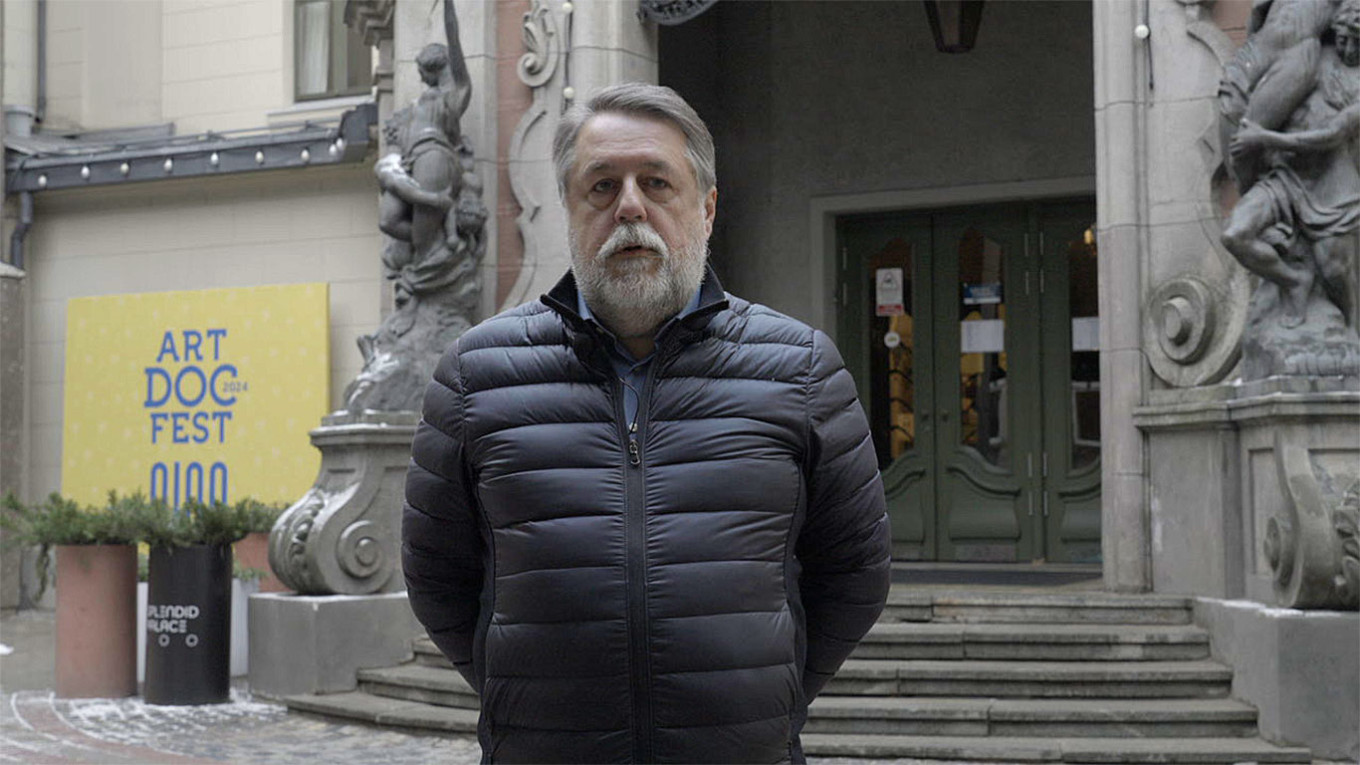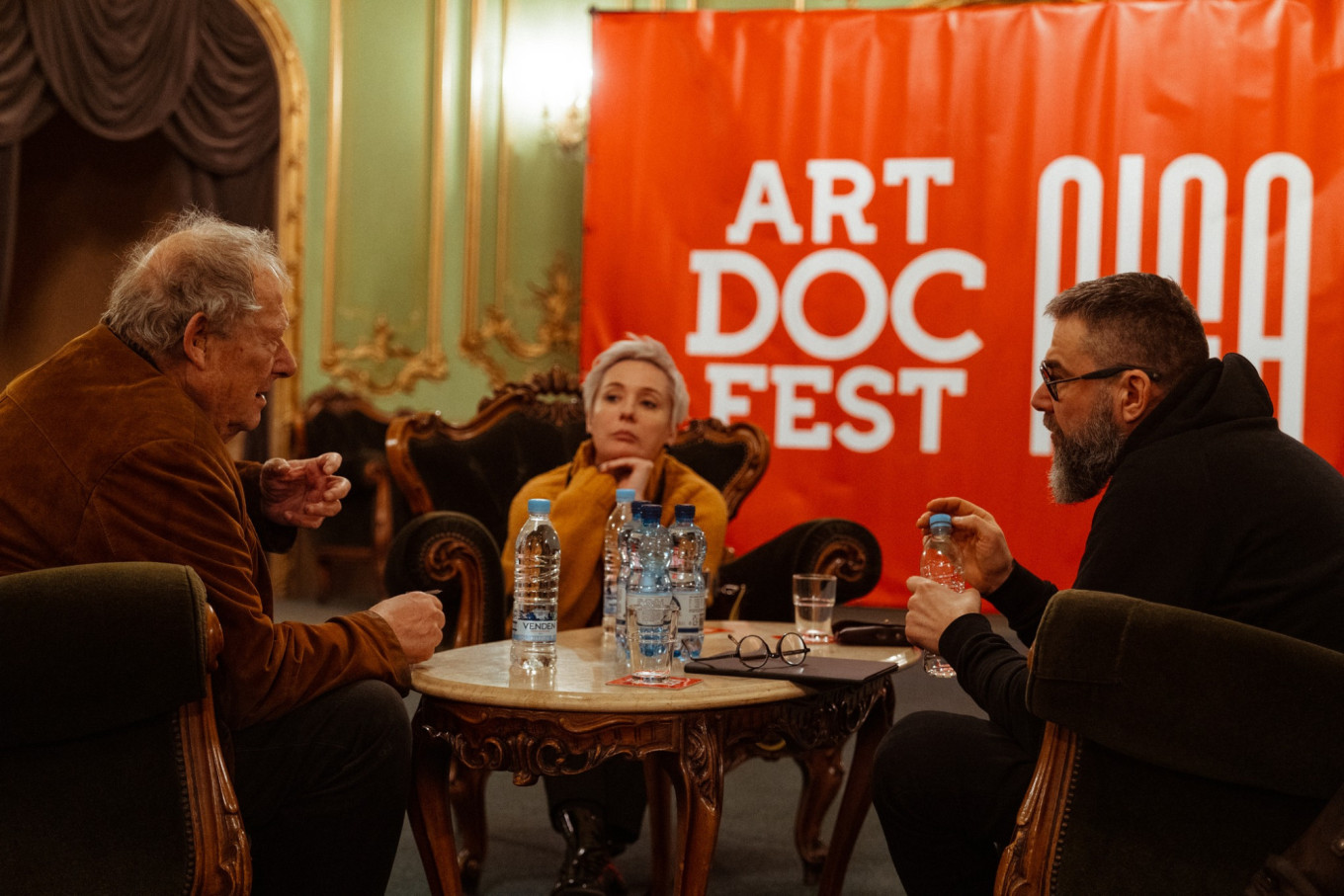Documentary filmmaking has a long and illustrious history in Russia, with waves of popularity that have tended to correlate with changes in the political climate. Soon after Vladimir Putin became president in 2000 and his government began chipping away at media freedom, interest in documentary film began to rise. As television network news became more controlled, documentaries became more important sources of information.
Vitaly Mansky has been one of the most important figures in the history and development of documentary film in Russia (and beyond). Born in Ukraine, he graduated from film school in Moscow, settled in the Russian capital and began to make films — more than 30 — and garner awards — more than 100 — and then produce films — more than 300.
Beginning in 1995 he headed several projects on Russian television channels One, REN-TV and TV Russia to present the best Russian and foreign documentaries to audiences all across Russia.
In 2007 Mansky launched a showcase of documentary films called Artdocfest in Moscow. The first festival drew more than 10,000 people. Each year since the programs have expanded. And each year since it has drawn larger and larger audiences. Premieres filled the 1,500-seat Oktyabr Theater, and audiences stayed late into the night to hear panels of critics and filmmakers discuss what they’d just seen on the big screen.
But as the pattern in Russia, the more popular the films and the larger the audience, the more problems from the state and its proxies. In 2014 after Mansky spoke out against the annexation of Crimea and the war in Donbas, Russian Minister of Culture Vladimir Medinsky banned all state support for the festival and any projects connected with it. Mansky and his family moved to Riga.
The festival in Russia continued all the same — along with continued harassment. In 2017 a right-wing group interrupted screenings and argued with filmmakers, organizers and members of the audience, storming the hall as a noxious gas was released. The next year the jury and competition were moved to Riga, although screenings of the films were still held in Moscow and St. Petersburg.
In April 2022, when the festival screenings were to begin in Moscow, the Russian authorities pulled films from the program and censored the program text and posters. Mansky was splashed with paint on his way to the opening. The festival closed before it opened.
Since then, Artdocfest has not held screenings in Russia, although it makes them available online for anyone in their Russian audience who can access them.

Artdocfest 2024
This year’s Artdocfest in Riga was an immersive, 24/7 film-planning, film-watching, film-talking experience. The festival screened 66 films in two competition categories, Artdocfest Open and Baltic Focus, and in five other non-competition categories. Films were shown amid the gilt palm trees of the 1923 Splendid Palace theater and at the airy Zuzeum Art Center of Latvian and contemporary art. The judges were all stars of the media and film industries in Eastern European and Baltic states. They watched everything, apparently foregoing sleep for the duration.
The festival opened with a commemoration of Juris Podnieks, whose 1986 film about Soviet youth “Is it Easy to Be Young?” launched the contemporary era of documentary film in the Soviet and post-Soviet space.
Festival days began at 10 a.m. with morning chats with directors over coffee in their hotel, then moved to the theater and art center during the day and evening for screenings, continued until 5 a.m. some nights for insomniac film lovers, and then began again the next morning. Audiences came for the 6 p.m. film and stayed for the second feature, and then stayed longer to ask questions of the directors.

New worlds and winners
The three films that won awards in the Baltic Focus series were about the inevitability of change or, in some cases, its absence. The Grand Prix went to “Once We Were Pitmen,” directed by Christian Johannes Koch and Jonas Matauschek, about men starting new lives after their coal mines were closed. The Best Director award when to Agnieszka Zwiefka for “Vika!” the remarkable story of an 84-year-old club DJ. And Ivars Zviedris’ “Gravediggers” won a Special Prize for his quiet, compelling story of the men who prepare the earth to receive the dead.
The Artdocfest Open films invited viewers into lives and worlds they did not know: walrus hunting in a village in Chukotka, a religious revival in Romania, hundreds of riders playing a daring and harrowing game on horseback in Kyrgyzstan, a trio of Hungarian travelers who seem to slip unintentionally into train ticket forgery so that they can see the world. Several films follow young people, others show the lives of LBGTQ+ communities.
Filmmakers focussed on Ukraine, Belarus and Russia before and during the war. Two films from Ukraine — “A Bit of a Stranger” and “A Picture to Remember” — give witness to the complex relationships among generations dealing with the question of national identity after Russia’s invasion.
The Grand Prix winner was the unsettling, vivid “In the Rearview” directed by Maciek Hamela, filmed in Ukraine after the war began. It takes place inside a van driving Ukrainians away from danger and into exile.
Two award-winning films left the audiences in Riga momentarily silent when they ended. “The Dmitriev Affair” (recipient of a Jury Special Mention Award) by director Jessika Gorter follows human rights activist Yury Dmitriev as he walks the Karelian woods looking for the tell-tale depressions indicating mass graves of Stalin’s victims of repression — and continues to follow him and his family though his trial and eventual conviction on child abuse charges they vehemently deny.
The Best Director prize was awarded to Marianna Kaat for her film “The Last Relic,” filmed in 2017-2020. The film, shot in Yekaterinburg — “a more free city” than Moscow at the time, Kaat said — tells in episodes the story of a group of dissidents concerned with human rights and freedoms and an earnest Marxist student leader. The dissidents write and bring packages to political prisoners, affably proselytize the prison guards, attend an obviously rigged trial, talk and quarrel among themselves. The student goes to a demonstration to save an iconic television tower slated for demolition, marches in a Communist parade and then visits the site where the last tsar and his family were buried after execution. Children sit in a tree and discuss politics. In a café the dissidents get into a political discussion with their server. The television tower falls. For a moment it seems to the audience — as it seemed to the people they are watching on screen — that these disparate moments might lead to some kind of change. But it all ends badly for almost everyone. One of the dissidents left the country and then was apparently tricked back into Russia and custody. The once-Marxist student has, wisely it seems, disappeared without a trace.
The one issue Artdocfest and the filmmakers have not been able to resolve is how to let audiences around the world see their films online. However, Artdoc.media has an enormous collection of documentaries from various years; some can be watched for free, others by subscription. And Artdocfest has made available 21 films for viewing (with English subtitles) free of change here.
More information about this year’s festival and all the winning films can be found here.
… we have a small favor to ask.
As you may have heard, The Moscow Times, an independent news source for over 30 years, has been unjustly branded as a “foreign agent” by the Russian government. This blatant attempt to silence our voice is a direct assault on the integrity of journalism and the values we hold dear.
We, the journalists of The Moscow Times, refuse to be silenced. Our commitment to providing accurate and unbiased reporting on Russia remains unshaken. But we need your help to continue our critical mission.
It’s quick to set up, and you can be confident that you’re making a significant impact every month by supporting open, independent journalism. Thank you.





